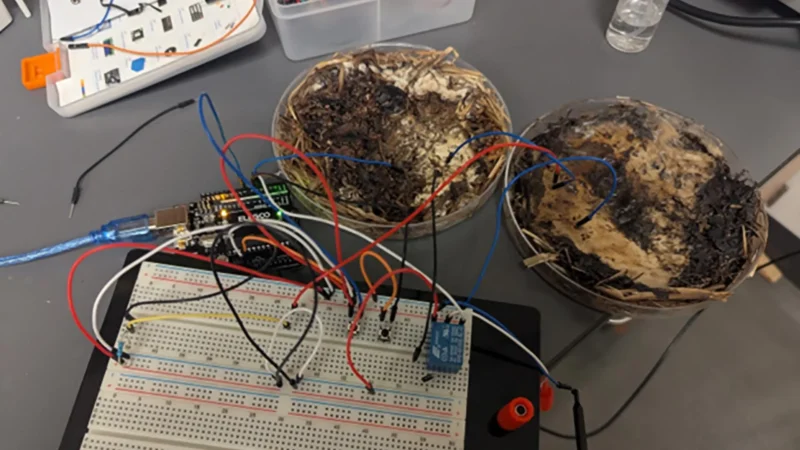Essential Insights
-
Fungal Innovation: Research from The Ohio State University reveals that edible fungi, like shiitake mushrooms, can be developed into organic memristors, functioning as eco-friendly memory devices for computing.
-
Sustainability & Cost-Effectiveness: Mushroom-based electronics are biodegradable and inexpensive, presenting a sustainable alternative to traditional semiconductors which rely on rare minerals and high energy use, thereby reducing electronic waste.
-
Promising Performance: Experiments showed mushroom memristors can switch electrical states up to 5,850 times per second with 90% accuracy, with potential applications in edge computing, aerospace, and consumer devices.
-
Future Directions: Researchers aim to refine cultivation methods and miniaturize fungal devices, making them viable alternatives to conventional microchips, with opportunities for broader application in sustainable technology.
Turning Mushrooms Into Living Memory Devices
Recent studies show that mushrooms, particularly varieties like shiitake, may become the foundation of a new type of computing. Researchers have developed a way for these fungi to function as organic memristors. These devices can store and recall information much like traditional semiconductor chips. Importantly, this could lead to sustainable and cost-effective computing solutions.
Experiments demonstrated that mushroom-based systems can switch between electrical states with impressive accuracy. Researchers connected electrical probes to different parts of the mushrooms to test their capabilities. Surprisingly, the fungi managed to switch states up to 5,850 times per second. This performance raises questions about the future role of organic materials in technology. As society increasingly prioritizes environmental sustainability, mushrooms present a promising avenue for innovation.
The Promise of Fungal Electronics
Fungal electronics represent a blend of biology and technology. Conventional electronic components often rely on rare minerals, which can be costly and environmentally damaging. In contrast, mushrooms are biodegradable and inexpensive. This quality could reduce electronic waste, making fungal computers not only practical but also ethical.
Moreover, the ability to connect multiple mushrooms may lead to brain-like computing characteristics. This flexibility opens doors for applications in edge computing and even aerospace exploration. As researchers refine their methods and develop smaller fungal devices, the potential for widespread adoption of this technology becomes more feasible. The growing awareness of environmental issues may drive demand for bio-friendly alternatives, ensuring that the journey toward sustainable innovation continues.
Expand Your Tech Knowledge
Explore the future of technology with our detailed insights on Artificial Intelligence.
Discover archived knowledge and digital history on the Internet Archive.
TechV1

